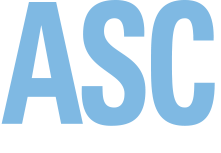Education Programs
Ginny Carlton provides learning opportunities to an array of different people, including K-12 students and teachers, and other audiences through programs like Grandparents University uwalumni.com/ grandparents-university. When providing these opportunities, Carlton works with many other individuals and groups to produce programming in a variety of formats.
“I think that’s one of the really wonderful things about Sea Grant; the education isn’t just left to me,” Carlton said. “As the education outreach specialist, I have the opportunity to work with a lot of our other colleagues at Sea Grant.” For example, Anne Moser (senior special librarian), Adam Bechle (coastal engineering specialist) and Carlton are collaborating on a NOAA-funded grant project that provides seventh grade students in the Racine Unified School District with educational opportunities related to coastal engineering concepts. Moser often collaborates with Carlton on projects; see more about her work in the story about the Wisconsin Water Library.
Carlton also mentioned commonly working with other Sea Grant programs and the Center for Great Lakes Literacy (CGLL). CGLL allows Sea Grant education specialists from across the Great Lakes basin to collaborate and produce educational products and programs. Carlton shared her efforts to lead a team of educators in the creation of the Trash Trunk, which is an educational kit that explores what marine debris is, its impacts and what can be done about it. Similarly, Carlton highlighted programming sponsored in collaboration with Minnesota Sea Grant. A recent example includes a webinar series entitled Trimming Our Sails, which connected the work of Tamara Thomsen, a maritime archaeologist who works with Great Lakes shipwrecks, with the work of Ashley Elgin, a benthic ecologist who presented on zebra mussels.
Though Carlton started her position at Sea Grant in 2019, she has observed several changes within the education field from the past 50 years. One change in the education field is a greater focus on place-based education. While early educational movements, such as nature study and conservation education, acknowledged ecological differences between one location and another, place-based education expands the concept of place beyond just geography. Place-based education uses aspects of the students’ environment like culture, ecology and economy to make connections between their education and local community.
Though the education field has made strides in becoming more inclusive and optimal for student learning, there are always improvements to be made.
“I hope we find ways to more fully open learning opportunities to everybody,” Carlton said. She noted that the COVID-19 pandemic has highlighted disparities in opportunity.
“At Sea Grant, we’re very fortunate because we have wonderful partners who can, and do, help with the work,” Carlton said. Sea Grant works with a variety of partners to design, promote, deliver and evaluate diverse educational offerings and products, which in turn helps all of us to reach a larger audience with important educational messages about the Great Lakes and people’s relationships to them. For example, a recent project, ROVe the Great Lakes, created in partnership with the Wisconsin Historical Society, features the work of maritime archaeologists who use remotely operated vehicles in their work.
Carlton has her sights set on further improving her field. —ER



